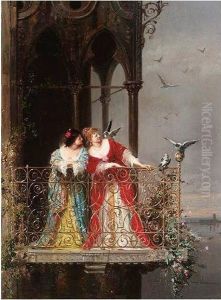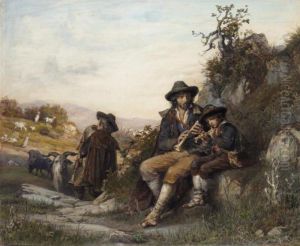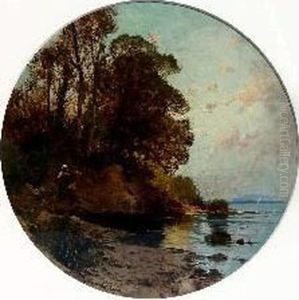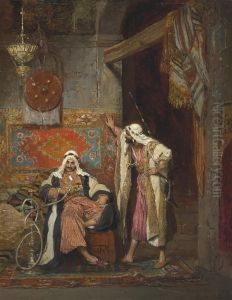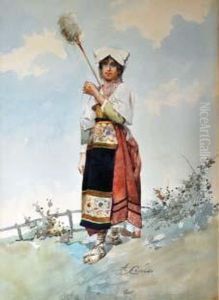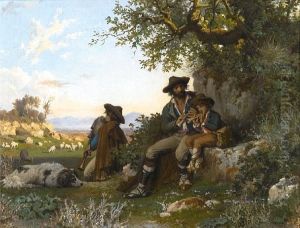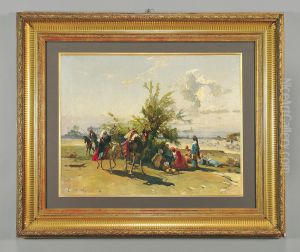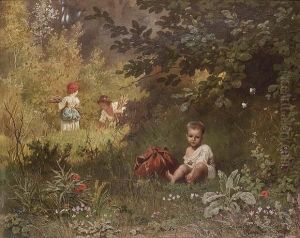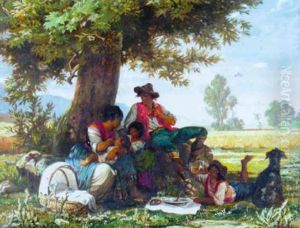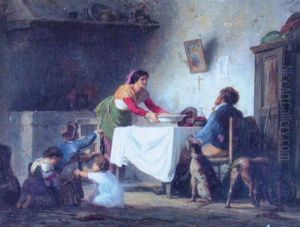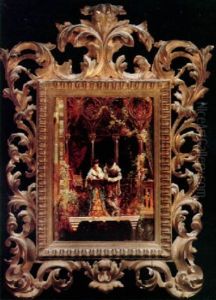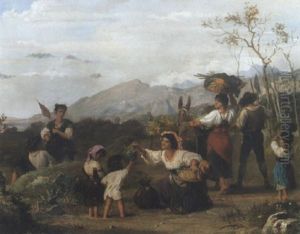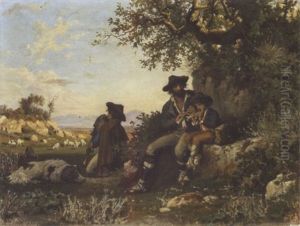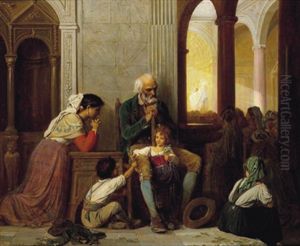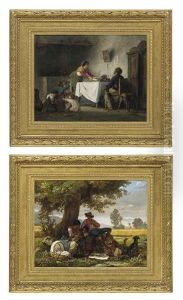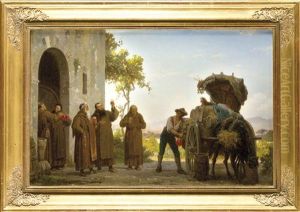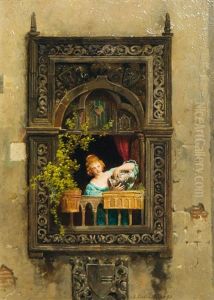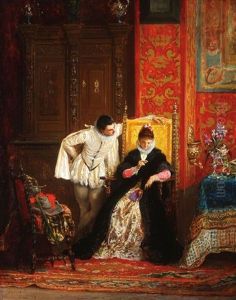Arnoldo Corrodi Paintings
Arnoldo Corrodi was a Swiss-Italian painter born in 1846, in Zurich, Switzerland. He was part of a family of artists, including his brother Hermann Corrodi, who was also a well-known painter. Arnoldo's artistic journey was deeply influenced by his Italian heritage and his extensive travels throughout Europe and the Middle East. These experiences enriched his palette and subject matter, making him a versatile artist who could effortlessly switch between genres, including landscape, genre scenes, and historical paintings.
Corrodi's education in art began under the guidance of his father, Salomon Corrodi, who was a respected landscape painter. This early exposure to the arts was pivotal in shaping Arnoldo's career. He further honed his skills at the Accademia di San Luca in Rome, where he was deeply influenced by the classical and Renaissance masterpieces he studied. This period in Rome was crucial for developing his style, characterized by meticulous detail, vibrant colors, and a profound appreciation for natural beauty.
Throughout the 1870s and early 1880s, Arnoldo Corrodi's work gained recognition across Europe. He exhibited his paintings in major cities, including Berlin, Paris, and London, earning accolades for his ability to capture the essence of his subjects. His travels to the Middle East, particularly Egypt and Syria, introduced exotic themes into his work, making him popular among collectors and patrons who were fascinated by orientalist subjects.
Arnoldo Corrodi's career, however, was tragically cut short when he died in 1882, at the young age of 36. Despite his brief career, Corrodi left behind a significant body of work that continues to be appreciated for its artistic merit and historical value. His paintings are a testament to his skill in capturing the diverse beauty of the landscapes and cultures he encountered. Today, Arnoldo Corrodi is remembered as a talented painter who contributed to the richness of 19th-century European art, bridging the gap between Swiss landscapes and the allure of the orient.
